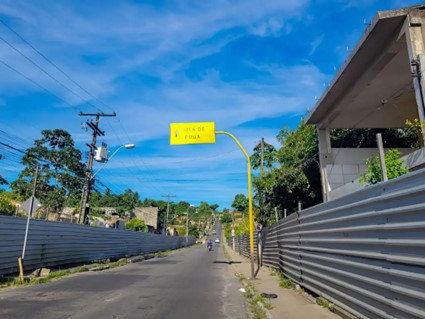
Every year leaves lessons learned for the next and, in 2024, it will be useful to take into account the reputational crises of 2023 in the corporate world, reflecting on the causes, to avoid repeating them. Since January 2023, a large number of companies of different sizes and sectors of activity in the country have faced shakes in the trust of their stakeholders, with a negative impact on their reputation.
There are many reasons. There is everything from a lack of knowledge about topics that mobilize public opinion, an inability to manage the crisis properly, to the conscious taking of extreme risk. External causes are also important, such as political and economic instability and warlike events such as those in Ukraine and, recently, in the Middle East.
The largest reputational crises, among the cases with public repercussion, were that of Lojas Americanas, caused by allegations of accounting fraud, and that of Braskem, responsible for rock salt mining in regions of Maceió, Alagoas, which recorded cracks and soil subsidence. Companies and sectors also suffered damage to their image, accused of racism or carrying out work similar to slavery, among others. Good practices related to the ESG acronym have failed in many cases. The retrospect also shows that challenges posed by the evolution of technology and the intensification of climate change require transformations in both operational strategy and reputational risk management.
Check out the most common causes of image and reputation crises in 2023:
The criteria taken into accountThe annual Reputation Feed survey considered around 30 cases of corporate damage to image and reputation in the private sector that had public repercussions. The definition adopted for the selection is that corporate reputation results from the way internal and external audiences perceive an organization.
From this point of view, reputational risk turns into damage or can even cause a reputational crisis when it becomes public.
The proportions differ depending on whether the information with the potential to generate a negative perception reached the stakeholder in a hallway conversation or in the community, through social networks or the media, impacting a restricted audience or a broader scope.
Reporting accounting fraud – Initially attributed to accounting inconsistencies, the Lojas Americanas episode, revealed from a hole in excess of R$ 20 billion (a number that increased later), shook confidence in the company and its leadership, in addition to generating questions about the responsibility of its shareholders for reference. The consequences affected creditor banks, suppliers, consumers and the financial market. Auditing companies were put in check. Market agents criticized the lack of transparency regarding the company's situation, which occurred from the beginning, when a communication without further details did not explain whether the inconsistencies were the result of an accounting error or whether the debts had been left off the balance sheet.


Socio-environmental disaster – The sinking of entire neighborhoods and the impact on a lagoon that is a source of income for fishermen, in Maceió, Alagoas, as a result of drilling in Braskem's rock salt mines represents considerable socioeconomic and environmental costs. The case gained more attention in the national media, after the collapse of part of a mine in early December, which occurred after a warning of a risk of collapse that had already led to the evacuation of several neighborhoods.
The problem has been going on for years and, since 2019, around 14 thousand properties have been vacated, affecting around 55 thousand people, according to Maceió city hall.
Reports of work similar to slavery – Reports of work similar to slavery involving outsourced workers have damaged the reputation of some traditional companies in the wine sector in Rio Grande do Sul, with some suffering consumer boycotts. Agribusiness organizations, such as rice farming and coffee farming, and show producers were also accused of promoting work similar to slavery.
Reports of racism – Among the most serious cases related to discrimination, prejudice and violation of human rights were allegations of racism. As it is a crime typified by law, it is one of those that usually generates the most repercussion in the media and social networks.
Religion, politics and body image – In April, a company in Fortaleza was investigated for having displayed a slide during training with the phrase: “We do not hire PT members, communists or people who are part of religions such as Candomblé”. In the same month, a booklet on dress code published by a banking institution with references to “enemies of body image” generated controversy, giving rise to interpretations of prejudice. Themes in this area, such as those linked to ageism and the specificities of generation Z, are always among the top trends on social networks, where even dubious expressions tend to be amplified.
Cancel culture – As a result of a decision on sponsorship, two of the most renowned chocolate brands in Brazil found themselves involved in a controversy on social media sparked by haters in April. The intention was to associate one of the brands with the right and the other with the left on the political spectrum, a usual tactic in cancellation attempts, with no connection to reality.
Promotional packages – For a number of reasons, such as the increase in the cost of air tickets and accommodation, as well as greater competition, some travel agencies sold promotional packages and did not deliver. Among the emblematic cases was the 123Milhas group, a tourism platform, which suspended the sale of tickets and flexible packages in August, offering only the option of refund in vouchers — that is, coupons for use in the company itself. Thousands of people registered complaints with Procons and used social media to report the inconvenience.
Climate changes - The intensification of climate events has exposed the weaknesses of many organizations. Electricity companies, notably Enel, in São Paulo, were pressured to better prepare themselves for risk and crisis management. And the disregard for the public at outdoor mega-concerts, such as Taylor Swift's, in which a young woman died and hundreds of people fainted in the intense heat, exposed the lack of preparation of the production company T4F, even leading to changes in legislation.
Cyberattacks and AI – In 2023, new technologies will be incorporated into companies' routines, with an emphasis on Artificial Intelligence. The balance is positive, but recent research by the Brazilian Internet Association (Abranet) shows that 57% of Brazilian companies claim to suffer from data bias in their artificial intelligence systems. In March, a Brazilian magazine was accused of racial discrimination for its artificial intelligence customer service system. In July, a financial institution was accused of sexism and discriminating against women through its artificial intelligence credit approval system.

